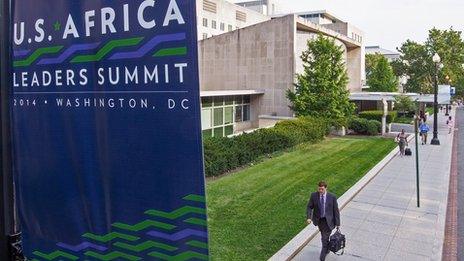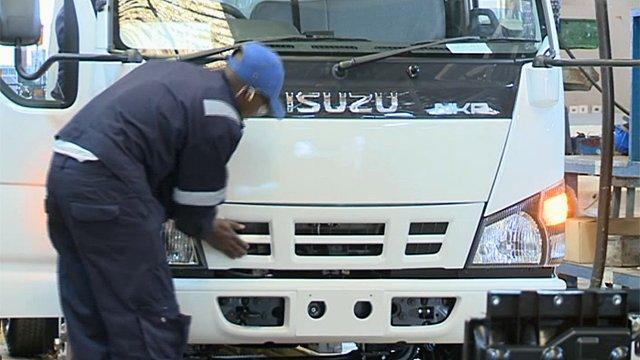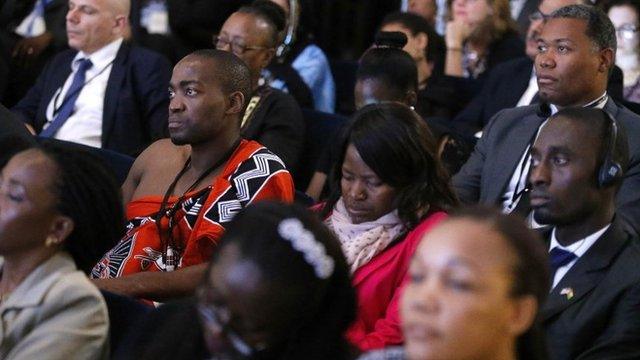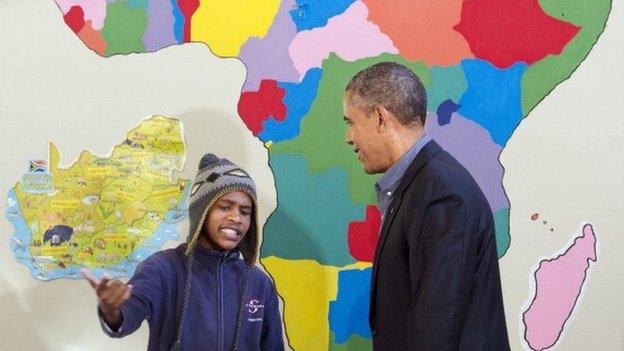Kerry: US investment can fight extremism in Africa
- Published
In an exclusive interview with BBC HARDtalk, Kerry says US investment was improving Africans' standard of living
US investment in Africa is fighting extremism there, US Secretary of State John Kerry has told the BBC.
In an interview with BBC's HARDtalk, Mr Kerry said stability from business projects was countering extremist ideologies and militant movements.
He spoke as more than 40 African heads of state gathered in Washington at the first US-Africa Leaders' Summit.
Earlier on Tuesday, US companies pledged to invest $14bn (£8.3bn) in the continent.
Mr Kerry told the BBC's Zeinab Badawi that US investment in Africa was developing infrastructure, bringing wealth, and improving the standard of living of many Africans.
"There will be less Boko Harams, less al-Shababs. There will be less cause for people to have their minds filled with extremist ideology rather than to engage in the broader benefits of society," he said.
Develop skills
The US remains the top investor in Africa, though in recent years China has dramatically increased its involvement in the continent.
Mr Kerry said the two countries took different approaches to business in Africa.
"We don't come into a place as some countries do with a simple deal and simple finance and bring our own workers in," he said.
"We have much greater ability to be able to train workers, to provide workers with ongoing skills and a longer-term employment capacity, which is very different from what other countries and other companies do."
Mr Kerry said American companies were listening to what African people wanted and were keen to respect human rights and democracy in the continent, while building business partnerships.
Despite initiating the US-Africa Leaders' Summit, President Barack Obama has been criticised for being slow to develop ties with the continent.
Mr Kerry denied the Obama administration had ignored African countries, citing the 2013 Power Africa pledge which aims to double electricity in Sub-Saharan African where two-thirds of the population are without it.
Development mistakes
According to the White House, Power Africa has received an additional $12bn in pledges towards its effort to develop energy supplies on Africa through a mix of investment and state involvement.
Mr Kerry said he welcomed competition with China over investing in the continent, stressing it was not a "zero-sum game".
But he said it was important to help make sure that Africa did not make the same development mistakes as the rest of the world.
"I'm speaking specifically about energy, climate change," he said.
"There are things we can do to help which will benefit Africa, which is long overdue these kinds of benefits and inputs from the rest of the world. The legacy will be the remarkable growth and development that takes place in Africa, and offers an alternative to some of the poverty and extremism."
- Published6 August 2014

- Published5 August 2014

- Published5 August 2014

- Published4 August 2014
